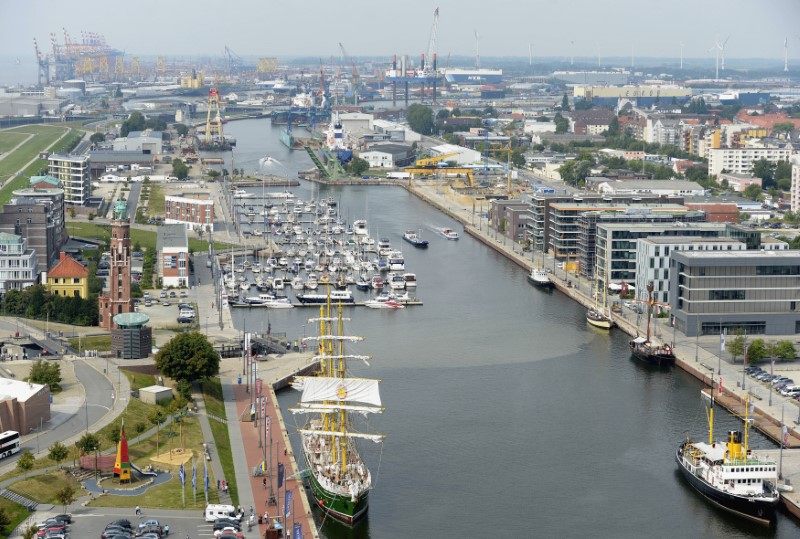By Paul Carrel
BERLIN (Reuters) - Germany's trade surplus climbed to a record high in 2016, official data showed on Thursday, days after U.S. President Donald Trump's top trade adviser accused Berlin of exploiting a "grossly undervalued" euro to its advantage.
The surplus is likely to worsen tension between Washington and Berlin, which is trying to safeguard global free trade this year during its presidency of the Group of 20 leading economies, adopting the motto "Shaping an Interconnected World".
Germany's trade surplus for 2016 rose to 252.9 billion euros ($270.05 billion), surpassing the previous high of 244.3 billion euros in 2015, the Federal Statistics Office said.
"The record surplus will continue to fuel the conflict with the USA and within the EU," said Marcel Fratzscher, head of the DIW economic institute, an advocate of stronger investment in Germany.
"European neighbors would benefit from stronger investment in Germany," he said. "Germany, however, would profit first and foremost, as the investment gap and the resulting excessive trade surpluses are detrimental to the domestic economy."
Germany's 2016 current account surplus, which measures the flow of goods, services and investments into and out of a country, surpassed China's surplus of $210.4 billion euros and hit $284.41 billion, making it the world's largest.
The United States runs persistent balance of trade and current account deficits and uses foreign capital to finance the difference between domestic investment and domestic savings.
The European Commission and the United States have urged Germany to increase its domestic demand and imports to help reduce global economic imbalances and fuel global growth, including within the euro zone.
Germany rejects such criticism, saying it has already increased domestic demand by introducing a national minimum wage in 2015 and agreeing to raise pension entitlements in 2016.
In addition, the government has increased state spending on roads, digital infrastructure and asylum seekers while sticking to its goal of keeping a balanced budget.
"GROSSLY UNDERVALUED"
Last week, U.S. President Donald Trump's top trade adviser said Germany was using a "grossly undervalued" euro to gain advantage over the United States and its European partners.
Chancellor Angela Merkel rejected the charge, saying her government had always called on the European Central Bank to pursue an independent monetary policy.
Some German lawmakers have pressed the ECB to tighten its policy. Finance Minister Wolfgang Schaeuble said at the weekend the euro was too weak for Germany, but he noted that the ECB "must make policy that works for Europe as a whole".
On Wednesday, Merkel said the European Union would have to press ahead on trade deals with other countries if it does not reach an agreement with Trump's administration.
The German trade surplus grew in 2016 even though exports fell 3.3 percent in December while imports were unchanged. That means for December alone, the trade surplus narrowed to 18.4 billion euros from 21.8 billion in November.
German industrial production also fell in December, but orders rose the same month by the most in more than two years, suggesting the first quarter of 2017 may be getting off to a strong start.
On Wednesday, Germany's DIHK Chambers of Commerce raised its forecast for German economic growth in 2017 to 1.6 percent, but it warned that companies were worried about U.S. trade policy.

($1 = 0.9365 euros)